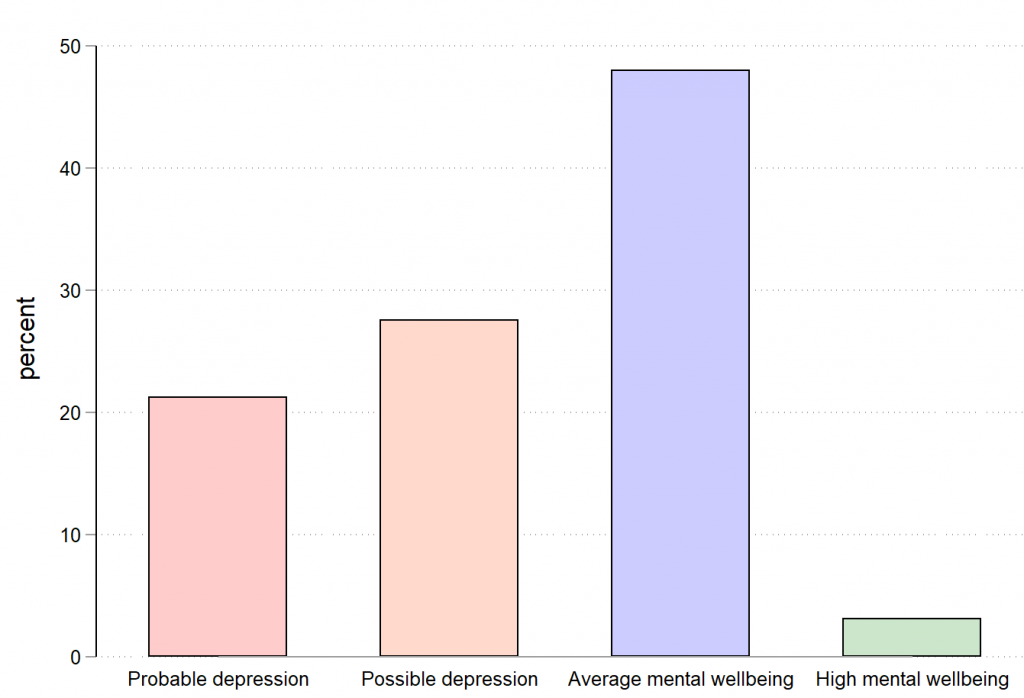Year 2 – Report 2021
Subjective well-being
One of the most striking findings from the READY baseline data is that, at a young age, these deaf young people are experiencing significantly poorer mental well-being than their peers in the general population.
Whereas in society at large for this age group, we would expect to see around 15% registering high well-being, the READY cohort registers only 3% (4 people). Forty-nine percent of the cohort have probable or possible depression based on the assessment we used, in comparison with an expectation of around 15% in the general population of this age.
Furthermore, these low well-being results cannot be explained by the proportion of deaf young people with additional needs in comparison with those of the same age in a general population study. Neither degree of deafness, ethnicity nor socio-economic status appear to be influential in how participants score on subjective well-being either.

Men in the READY baseline cohort have better well-being in comparison with women, which is consistent with national trends for young people of this age. However, women in our cohort scored statistically significantly lower than women in a comparison group in the general population.
They also scored lower than deaf women who are BSL users in a different study. These results combined start to identify sex as a potential risk factor for poor subjective well-being amongst deaf young women in this age range.
